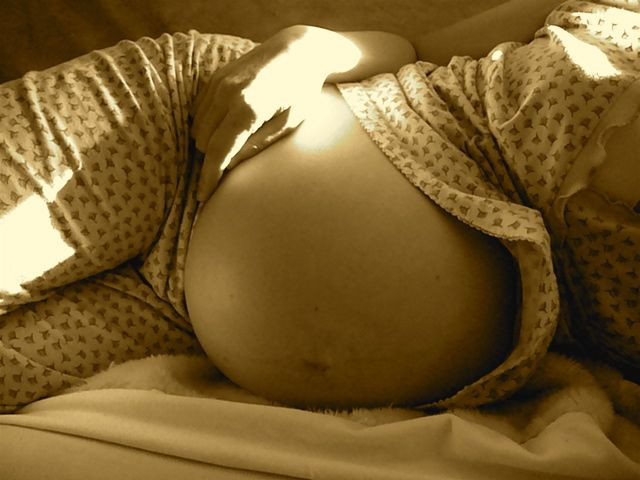Women In First Trimester Of Pregnancy Don't Benefit From Progesterone Supplements To Lessen Risk Of Miscarriage: Study

New research published in the The New England Journal of Medicine suggests progesterone supplements are not as beneficial for women in early pregnancy as once thought.
Researchers from the University of Birmingham cited progesterone is the hormone "essential for the maintenance of pregnancy"; it prepares the wall of the uterus to accept a newly fertilized egg. In the past, it's been suggested low levels of progesterone have led some women to miscarry, what's also known as "spontaneous abortion." In which case, progesterone supplementation was thought to increase the rates of live births and newborn survival, especially among women who previously miscarried for reasons they couldn't explain.
In an effort to clarify the "60 years of uncertainty" on the use of progesterone treatment for women, researchers recruited 826 women with previously unexplained recurrent miscarriage from hospitals located across the UK and the Netherlands to participate in a five-year trial, called PROMISE (Progesterone in Miscarriage Treatment). Recurrent miscarriage was defined as "the loss of three or more pregnancies," something that reportedly affects 1 percent of couples trying to get pregnant.
Participants received twice-daily vaginal suppositories of either 400 milligrams of micronized progesterone or 400 milligrams of placebo beginning shortly after a positive urinary pregnancy test — treatment started no later than six weeks of gestation through 12 weeks of gestation.
The results showed the rate of live births after 24 weeks of gestation was 65.8 percent (262 out of 398 pregnancies) in the progesterone group compared to 63.3 percent of the placebo group (271 of 428 pregnancies). There were no significant differences between the two groups in terms of clinical pregnancy, ongoing pregnancy, ectopic pregnancy, miscarriage, stillbirth, and neonatal outcomes. These results persisted, too, after researchers factored for age, ethnicity, and women's medical and pregnancy history.
"We had hoped, like many people, that this research would confirm progesterone as an effective treatment," said study author Arri Coomarasamy, a professor of gynecology at the University's Institute of Metabolism and Systems Research, in a press release. "Though disappointing, it does address a question that has remained unanswered since progesterone was first proposed as a treatment back in 1953. Fortunately, there are a number of other positives that we can take from the trial as a whole ."
These positives, Coomarasamy continued, include the fact there were no negative effects of progesterone treatment for women or for their babies. This could be useful information to women taking progesterone for otherwise fertility problems.
"It may well be that progesterone supplements have other uses, such as preventing miscarriage in women with early pregnancy bleeding, so it's not the end of the road," Coomarasamy said. "Furthermore, the PROMISE trial created a solid network of doctors, nurses, and midwives across the UK and beyond, all committed to miscarriage research. That wealth of expertise and information will be invaluable as we continue to explore and test other treatments that really can reduce the risk of miscarriage."
Source: Coomarasam A, et al. A Randomized Trial of Progesterone in Women with Recurrent Miscarriages. The New England Journal of Medicine. 2015.



























